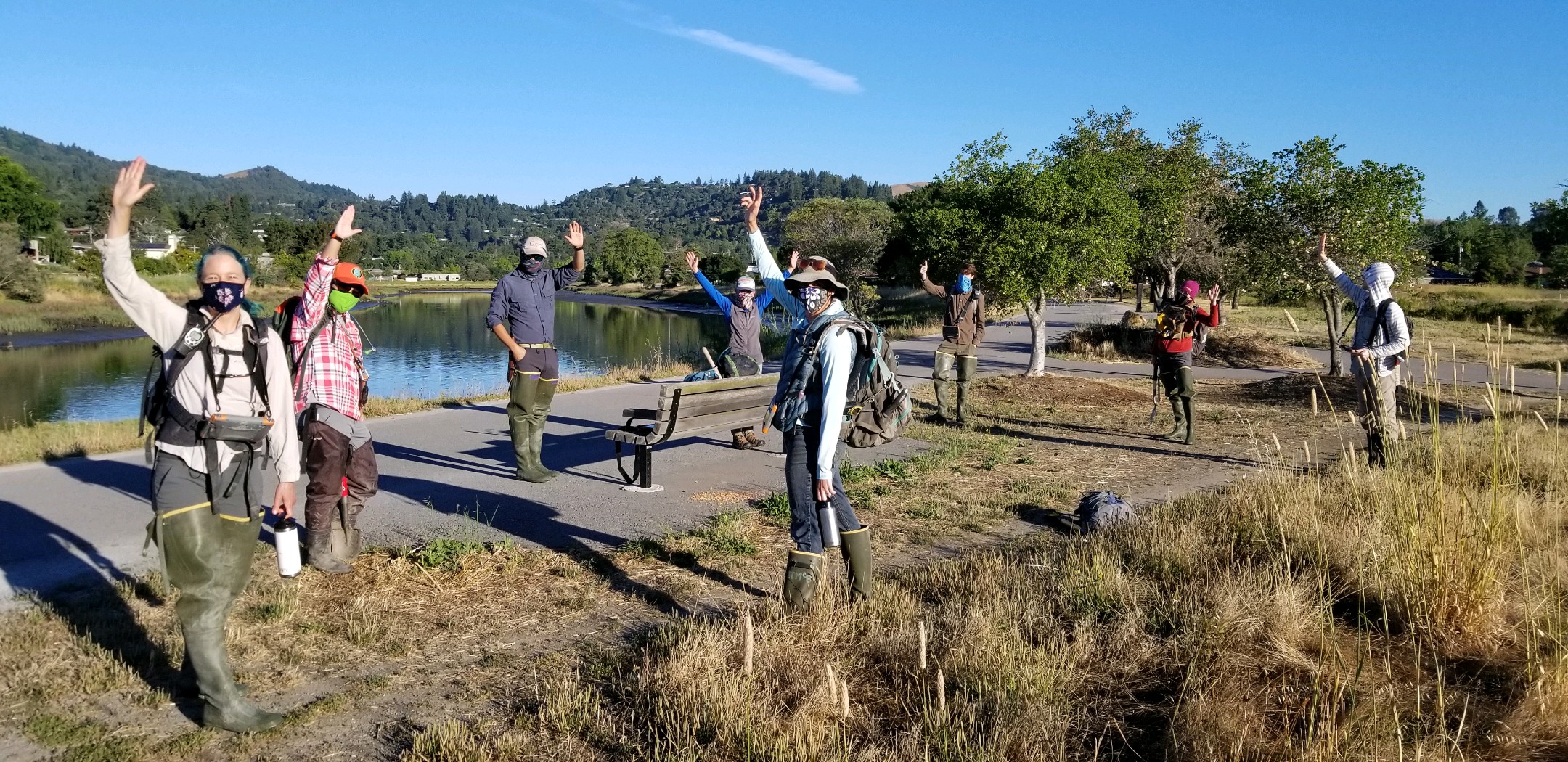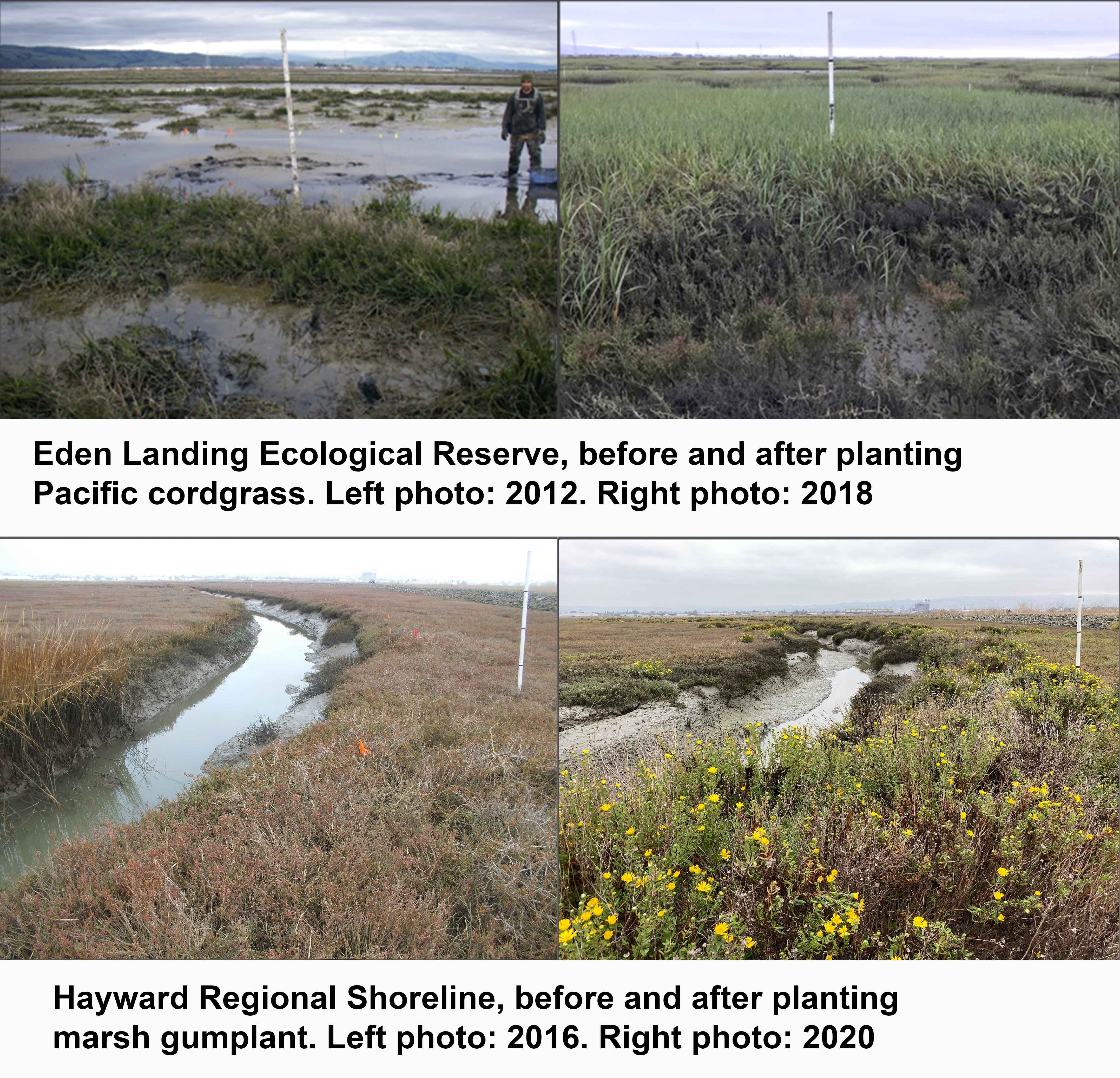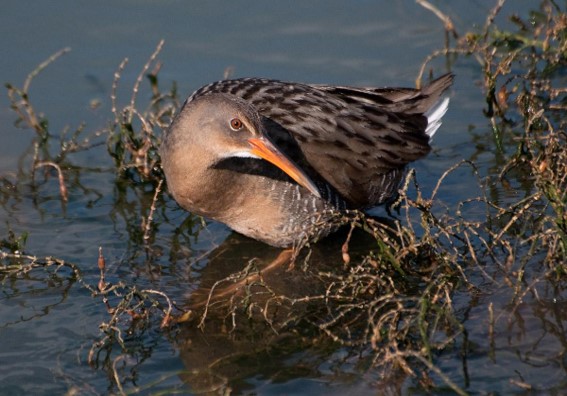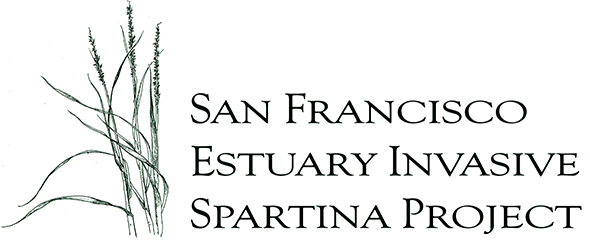
The Invasive Spartina Project (ISP) has been busy gearing up for the 2021 treatment season! The California Invasive Plant Council, the State Coastal Conservancy, and our many partners have been working hard to eradicate invasive cordgrass and restore tidal marshes and mudflats across San Francisco Bay, providing crucial habitat for Ridgway’s rail and other sensitive species. We want to update our many collaborators and supporters across the region on our progress.
Treatment and Monitoring:
The ISP treatment team is now in our 16th monitoring and treatment season! This work has reduced the amount of invasive Spartina across the Bay by 96% since treatment was initiated in 2005, down to a current total of only 33.1 acres detected Bay-wide. This remaining invasive Spartina is spread over 220 sites, some reachable only by airboat.
Over the last five survey seasons, we have inventoried an average of 34,000 acres per year. In 2021, we are resuming treatment at Citation Marsh in Roberts Landing in San Leandro, one of a handful of sites where access was restricted starting in 2010 to stabilize Ridgway’s rail numbers. Resuming treatment at these sites will help the project stop the reintroduction of the invasive to neighboring sites and allow us to move forward towards our goal of eradication.
We greatly appreciate the strong coordination with more than 150 landowners across all nine counties in our 70,000 acre project area. We encourage all tidal marsh landowners and tidal marsh restoration project leads to coordinate with us to prevent the unintentional spread of invasive Spartina. Please contact info@spartina.org if you need an updated map of invasive Spartina status at your site, or if you are seeing new detections in your area.
Restoration:
ISP’s restoration program works to rapidly enhance habitat for Ridgway’s rails and other tidal marsh-dependent wildlife, with a primary (but not exclusive) focus on restoring invasive Spartina treatment sites.
We just completed our 10th year of habitat enhancements, bringing our total to 530,000 plants installed at over 40 restoration sites and 72 high-tide refuge islands constructed at 16 sites. Some of our most exciting progress has been at the Eden Landing Ecological Reserve in Hayward, where plantings of native cordgrass (Spartina foliosa) and other species have significantly restored native tidal marsh habitat. For our upcoming 2021-2022 winter revegetation season, we plan to propagate and outplant an additional 21,000 plants at 6 to 8 sites around the Bay.
One of our restoration goals is to prevent re-infestation or hybridization of native Spartina at restoration sites. We do this with careful monitoring and planning, which includes genetic testing of plants. If you have restoration plans in tidal marsh habitat, please reach out to us at info@spartina.org so that we can optimize our efforts.

California Ridgway’s Rail Monitoring:
This spring, during the 2021 rail survey season (January 15 to April 15), we completed surveys at 94 marsh sites. At one of our early restoration sites in Eden Landing Ecological Reserve, the 2021 survey detected 13 Ridgway’s Rails, up from eight in 2020, and none in 2018. This is great confirmation that the restored marsh is providing much-needed habitat.
We are now working with Point Blue Conservation Science to develop an updated Bay-wide population estimate for Ridgway’s rails, building on the last estimate released in 2012. They expect to release the new estimate in 2022.

Outreach
For California Invasive Species Action Week (June 5-13), the ISP’s Jeanne Hammond (Restoration Program Manager) and Lindsay Faye Domecus (Environmental Biologist) presented a webinar on the project as part of a lunchtime series co-hosted by the California Invasive Plant Council and University of California’s Cooperative Extension. Find a video recording of the presentation on the UCANR website.
Treatment Program Manager Drew Kerr made presentations to land managers at Weed Management Areas (WMAs) in San Mateo, Santa Clara, and Marin counties.
We greatly appreciate the collaborative efforts of so many partners that make this work possible! If you have any questions, please reach out to us at info@spartina.org.
